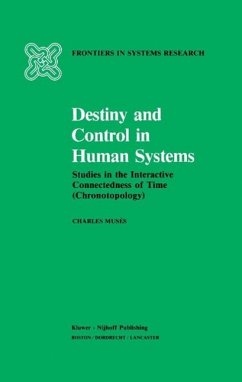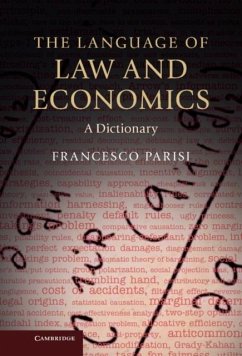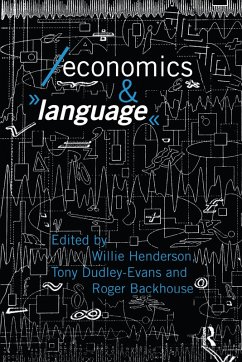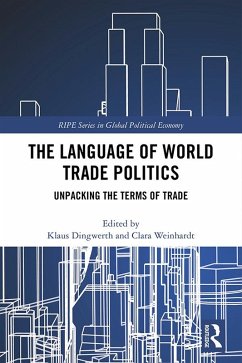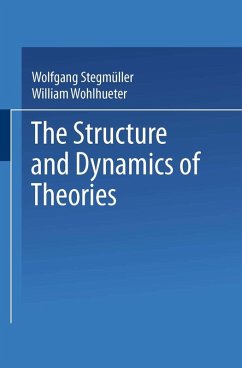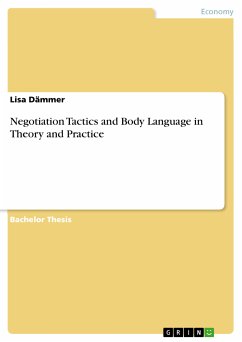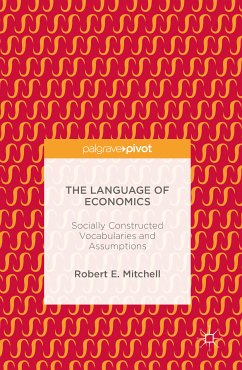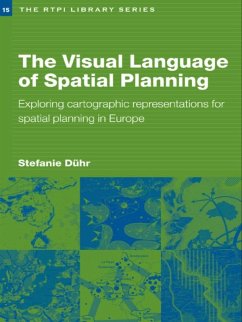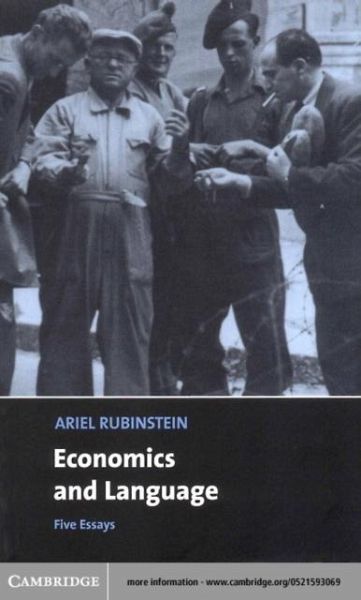
Economics and Language (eBook, PDF)
Five Essays

PAYBACK Punkte
12 °P sammeln!
Arising out of the author's lifetime fascination with the links between the formal language of mathematical models and natural language, this short book comprises five essays investigating both the economics of language and the language of economics. Ariel Rubinstein touches the structure imposed on binary relations in daily language, the evolutionary development of the meaning of words, game-theoretical considerations of pragmatics, the language of economic agents and the rhetoric of game theory. These short essays are full of challenging ideas for social scientists that should help to encour...
Arising out of the author's lifetime fascination with the links between the formal language of mathematical models and natural language, this short book comprises five essays investigating both the economics of language and the language of economics. Ariel Rubinstein touches the structure imposed on binary relations in daily language, the evolutionary development of the meaning of words, game-theoretical considerations of pragmatics, the language of economic agents and the rhetoric of game theory. These short essays are full of challenging ideas for social scientists that should help to encourage a fundamental rethinking of many of the underlying assumptions in economic theory and game theory. As a postscript two economists, Tilman Borgers (University College London) and Bart Lipman (University of Wisconsin, Madison), and a logician, Johan van Benthem (University of Amsterdam, Institute for Logic, Language and Computation and Stanford University, Center for the Study of Language and Information) offer comments.
Dieser Download kann aus rechtlichen Gründen nur mit Rechnungsadresse in A, B, BG, CY, CZ, D, DK, EW, E, FIN, F, GR, HR, H, IRL, I, LT, L, LR, M, NL, PL, P, R, S, SLO, SK ausgeliefert werden.




